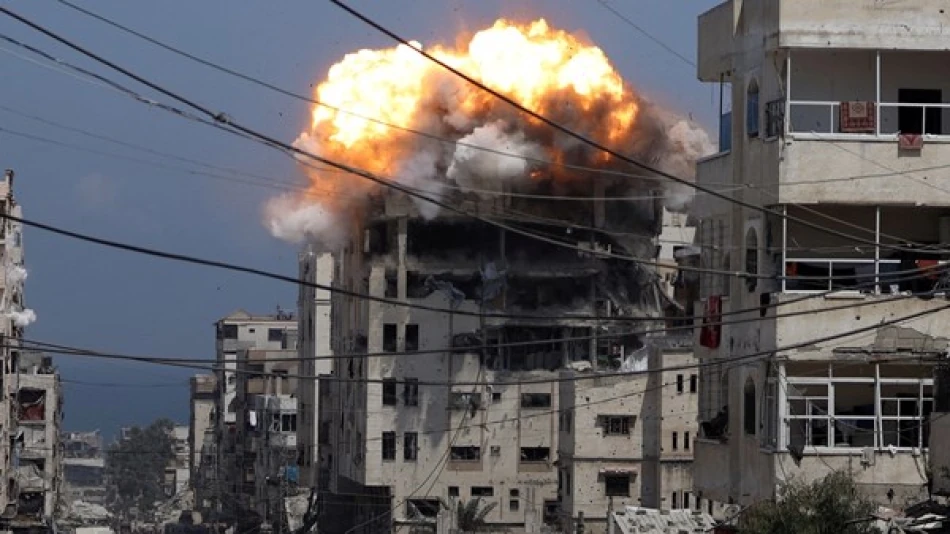
Global Powers Demand Immediate Ceasefire in Gaza Conflict
Western Alliance Demands Immediate Gaza Ceasefire as Humanitarian Crisis Reaches Breaking Point
Twenty-five Western nations have issued an unprecedented joint statement demanding an immediate end to the Gaza war, citing "unprecedented levels" of civilian suffering and warning that over 800 Palestinians have been killed while seeking humanitarian aid. The coordinated diplomatic push, led by Britain, France, Italy, Canada, and Australia, signals growing international pressure on Israel after 21 months of conflict that has pushed Gaza's 2.2 million residents to the brink of famine.
Coordinated Western Pressure Intensifies
The joint statement represents one of the most forceful collective Western responses to the Gaza crisis, calling for an "immediate, unconditional, and permanent ceasefire." The coalition's unified stance breaks from earlier, more cautious diplomatic approaches and reflects mounting frustration with the humanitarian situation's deterioration.
The countries specifically condemned what they termed Israel's "unacceptable" refusal to provide basic humanitarian assistance to civilians, marking a significant shift in Western diplomatic language toward Israel's conduct in the conflict.
Humanitarian Catastrophe Deepens
Aid Distribution Becomes Deadly
According to UN reports, approximately 800 Palestinians have been killed by Israeli fire while waiting for aid deliveries since late May. These deaths have become a near-daily occurrence, with Gaza's civil defense and witnesses documenting regular incidents of civilians being shot while queuing for desperately needed supplies.
The pattern of violence around aid distribution points has effectively weaponized humanitarian assistance, creating a deadly paradox where seeking help becomes a life-threatening act.
Economic Collapse Accelerates Starvation
The UN Relief and Works Agency (UNRWA) reports that supply shortages have driven food prices up by 4,000%, making basic nutrition unaffordable for most residents. This hyperinflation has created an artificial famine despite UNRWA having enough supplies warehoused outside Gaza to feed the entire population for over three months.
UNRWA officials describe receiving "desperate messages about hunger" from their own staff inside Gaza, highlighting how the crisis has reached even those with international connections and resources.
Strategic Implications for Regional Stability
The Western coalition's statement signals a potential turning point in international support for Israel's military campaign. The coordinated nature of the response suggests behind-the-scenes diplomatic coordination that could presage more concrete actions, including potential changes to arms sales or international legal proceedings.
For regional powers, the statement provides diplomatic cover for increased pressure on Israel while potentially opening space for Arab nations to play a larger mediation role. The explicit condemnation of aid blockades also sets precedents for international intervention in similar conflicts.
The Siege Strategy Under Scrutiny
UNRWA's stark assessment that "the suffering in Gaza is man-made and must stop" directly challenges the strategic logic behind restricting aid access. The agency's call to "lift the siege and let aid enter safely and at scale" frames the crisis not as an unfortunate byproduct of war, but as a deliberate policy choice.
This framing puts Israel's siege tactics under unprecedented international scrutiny, potentially complicating future military operations that rely on restricting civilian access to basic necessities. The documentation of aid-related deaths also creates potential legal liabilities for military commanders and political leaders.
The convergence of humanitarian catastrophe and coordinated Western pressure creates the most significant diplomatic challenge Israel has faced since the conflict began, with implications extending far beyond Gaza's borders.
Most Viewed News

 Layla Al Mansoori
Layla Al Mansoori






